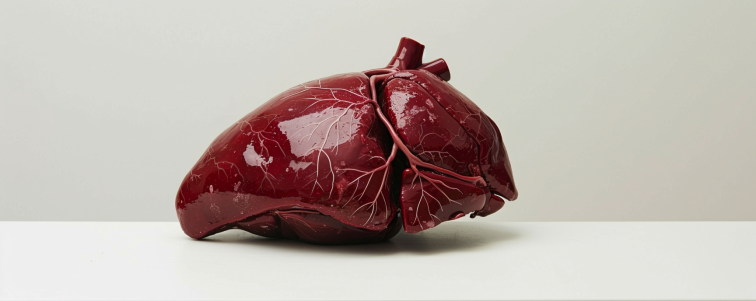
Maintaining Liver Health in the Monsoon Season
Poor sanitation and water contamination during the rainy season significantly raise the risk of stomach infections such as dysentery, diarrhea, and typhoid. These conditions manifest through symptoms like stomach pain, loose motions, nausea, and high fever. Hepatitis A, which involves liver inflammation, can also cause jaundice, identified by yellowing of the eyes and skin, yellow urine, white stools, and stomach pain.
The monsoon season, while a relief from the summer heat, brings with it a surge in gastrointestinal problems, particularly liver diseases. Contaminated water and food become major culprits, leading to a spike in cases of hepatitis A and E. It is crucial to adopt precautionary measures to protect your liver and maintain overall health during this time.
The Risks Involved
Dr Hemamala, founder of The Liver World, highlights that hepatitis A and E cases rise during the monsoon due to polluted food and water. Consuming street food, pre-cut fruits, and beverages made with lousy-quality ice or water increases the risk of infection.
If left untreated, hepatitis A and E can severely impact overall well-being. These infections can lead to acute liver failure, necessitating liver transplantation. Jaundice is a common symptom where the skin and eyes turn yellow, indicating severe liver dysfunction.
Liver Health in the Monsoon Season: Essential Tips and Insights
As the monsoon season ushers in a refreshing change from the oppressive summer heat, it also brings a heightened risk of infections, particularly those affecting the liver. The combination of increased humidity and fluctuating temperatures can cause great harm to our digestive systems, making it crucial to pay extra attention to liver health during this time. Please read and follow these important tips to make sure your liver stays safe and healthy throughout the monsoon.
Avoid Contaminated Food and Water
During the monsoon season, water contamination is a major concern. This can lead to a surge in liver infections, particularly Hepatitis A and E, which are transmitted through contaminated food and water. To protect yourself:
- Avoid street food and pre-cut fruits: Street vendors often use contaminated water, which consists of harmful viruses.
- Opt for home-cooked meals: Ensure that all fruits and vegetables are thoroughly washed and cooked at home.
- Consume Boiled/Filtered Water: Always drink clean water to prevent waterborne diseases.
Focus on maintaining excellent Personal Hygiene
Good hygiene practices are necessary to avoid liver infections. The humid conditions of the monsoon make it an ideal breeding ground for bacteria and viruses. To minimize your risk:
- Wash or Sanitize your Hands: Always use a soap or sanitizer for your hands before preparing or eating food.
- Avoid open defecation: Ensure proper sanitation to prevent water sources from getting contaminated.
Always Stay Hydrated
Staying hydrated is super important for maintaining liver function, particularly during the monsoon. Dehydration can slow down the detoxification process. Here’s how to stay hydrated:
- Drink large amounts of Liquid – Mainly Water: Drink at least 8-10 glasses of pure, boiled, or filtered water daily. Mineral water can be better.
- Include hydrating foods: Consume fresh fruit juices and herbal teas.
Recognize Symptoms of Hepatitis
Hepatitis can often present with mild symptoms that might go unnoticed. It is essential to be aware of the signs and seek medical advice if needed.
Common symptoms Comprise of:
- Fatigue
- Loss of appetite
- Nausea and vomiting
- Abdominal pain or discomfort
Adopt a Liver-Friendly Diet
Eating a healthy diet can significantly improve liver health. During the monsoon, focus on consuming:
- Fresh, homemade meals: Avoid junk food and processed items.
- Liver-friendly foods: Include antioxidant-rich foods like beetroot, nuts, and avocado in your diet.
Regular Exercise
Exercise will help largely in maintaining liver health by improving blood circulation and eliminating toxins. Despite the rainy weather, find ways to stay active:
- Indoor exercises: Practice yoga, stretching, or other home-based fitness routines.
- Consistency is Crucial: Your target should be least 25 to 35 minutes of moderate exercise daily.
Consider Vaccination
Vaccination is an important preventive measure against hepatitis. If you are not already vaccinated:
- Hepatitis A: This is especially important if you are over 18 and have not been vaccinated.
- Hepatitis B: Recommended for those at high risk, as it is spread through body fluids.
Special Care for Vulnerable Groups
Pregnant women are particularly vulnerable to hepatitis during the monsoon due to hormonal changes that can exacerbate the effects of the virus. They must avoid outside food and water entirely to reduce the risk of infection.
Conclusion
Taking care of your liver during the monsoon season involves a combination of good hygiene practices, a balanced diet, proper hydration, regular exercise, and staying vigilant about potential symptoms of hepatitis. After following these tips, you can enjoy the monsoon season while making sure your liver is healthy and functioning at an optimal level. Always consult with healthcare professionals if you have any concerns or symptoms, and consider getting vaccinated to provide an extra layer of protection against liver diseases. Stay safe and healthy this monsoon!
if you are suffering from Liver related ailments, Contact Dr. Hemamala Ilango in Chennai for consultation.

Leave a Reply